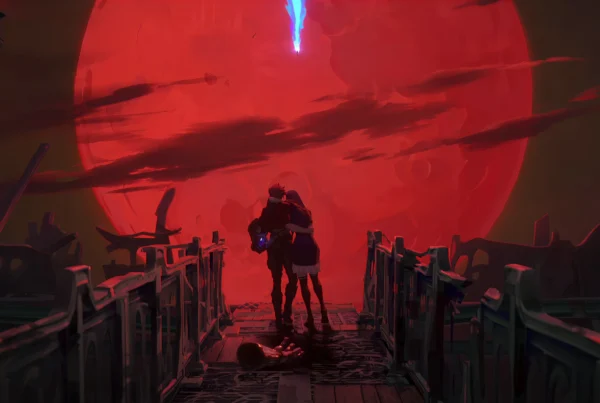By Audrey Barbe
I was sitting in at McCafé, enjoying the free Wi-Fi of the fast-food chain, every other library of Reims being closed on a November Sunday afternoon, when a guy landed on my table.
“Hey Ma’am, would you have a pen for me please?”
I looked up, and saw the innocent face of a mid-twenties guy, still struggling to wake up after a Saturday night, that had probably been full of alcohol.
“Yeah, sure, here it is,” I responded with a gentle smile. The guy jotted something I couldn’t read on his receipt. Another man came to the table, and sat in front of his friend with his tray full of fries. He noticed his friend had been talking to me, and said:
“Hey girl, what’s your name?”
“My name’s Audrey. And you?”
“I am Mohammed.”
“I am Naïm.” the other one said.
I returned to my laptop, trying to concentrate on Ernest Renan’s thoughts, trying to explain why our nations are ‘daily plebiscites.’
“What are you doing Audrey?” carried on one of the two guys.
“Well, I am trying to understand what makes a nation according to Renan.”
“So what?” he asked me with a challenging tone. “What’s a nation according to you?”
And the conversation was sparked. They told me about their conception of the nation, about how people should be governed, about the crisis our nation was going through in France. Obviously, it came to politics. And obviously, as many of the French people, they were resigned.
“Yeah, you understand, the people who govern us are from the old elites. They are not from the people; they no longer understand our claims.” And they went on, Naïm about his experience as an employed worker at GRDF and Mohammed about his struggles to make ends meet when he was an entrepreneur. They kept talking, and I kept listening to them. So they carried on talking about the best political regime in the world. They told me that Gadhafi’s Libya had been the best country to live in the world, before the dictator was toppled. So the best regime would surely be a dictatorship, with the leader coming from the people, knowing what it feels to be poor, but also knowing how it is to be rich. I respected their view. I just felt that if one day I was to become a political leader, I would have to know how to truly listen to people, rather than trying to impose my views. So I kept listening to what they said.
Naïm was a fervent Muslim. I was a fervent Christian. So, obviously, the conservation came to religion. According to Naïm, Allah had sent him to Earth to go through a certain number of hardships, and the way he would cope with these would determine his judgement, the day he would die.
“But today, I’m not ready to die. I am not ready, ‘cause I am not pure yet. I’ll have to pray more, and read more the holy book God has given me. And I have no excuse, because I have loving and caring parents who have taught me religion, I have the Koran, I have everything to succeed. So if I don’t, it’s entirely my fault. I’ll have to be stronger in the face of temptations, and once I have achieved that, I can die serenely.” This hit home for me. I realised very strong common points in the Christian faith. I totally shared with him this feeling of unworthiness in front of the perfectness and magnanimity of God.
Mohammed added: “But you see Naïm, Allah is all love. He is nothing else. And with love, you can do anything, anything. Therefore, if you have love, then you have everything.” I remained silent. I remained silent because The First Letter of Saint Paul the Apostle to the Corinthians suddenly banged into my hand.
“Love is patient, love is kind and is not jealous; love does not brag and is not arrogant, does not act unbecomingly; it does not seek its own, is not provoked, does not take into account a wrong suffered, does not rejoice in unrighteousness, but rejoices with the truth; bears all things, believes all things, hopes all things, endures all things. Love never fails.”
As I remained silent, Mohammed asked me what I was thinking about. “See, talking with you, I just realized how Muslim and Christian hearts are dwelt by the same faith. You talk about things that are written in black and white letters in the Bible. This is just crazy. Many thanks for what you shared with me.” I told him. “Christians are our brothers, Audrey. Once Muslims and Christians will have understood they are brothers, a big step will have been made,” Mohammed responded.
After the guys left, my thoughts were a bit shaken up. So I didn’t finish reading Renan’s essay. I stood up and thought about how unexpected encounters change the way I see people in the street, in my building, in my school. We all have our kind of story. Naïm and Mohammed had theirs. And once they told it to me, I understood what our Republican value of brotherhood concretely meant. It not solely means that we have this solidarity instinct that ties us to one another in case of danger. It means that we all have something to share, that there is something stronger that binds us together.
Other posts that may interest you:
- The Trouble with ‘Ecocide’
- Carbon dioxide removal – hit or miss?
- Local Victories for Turkish Opposition — A Sign of Hope?
- Are France and Japan a Mismatch Made in Heaven?
- A Reflection on Dark Tourism
Discover more from The Sundial Press
Subscribe to get the latest posts sent to your email.



